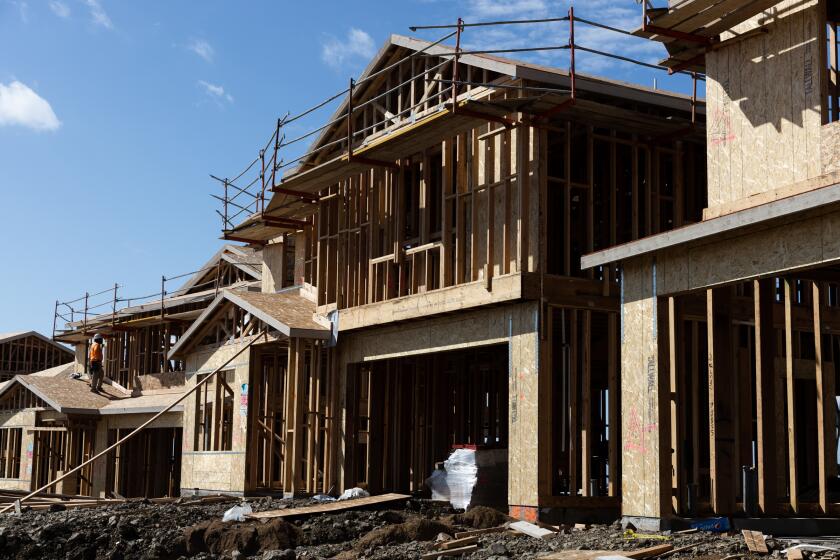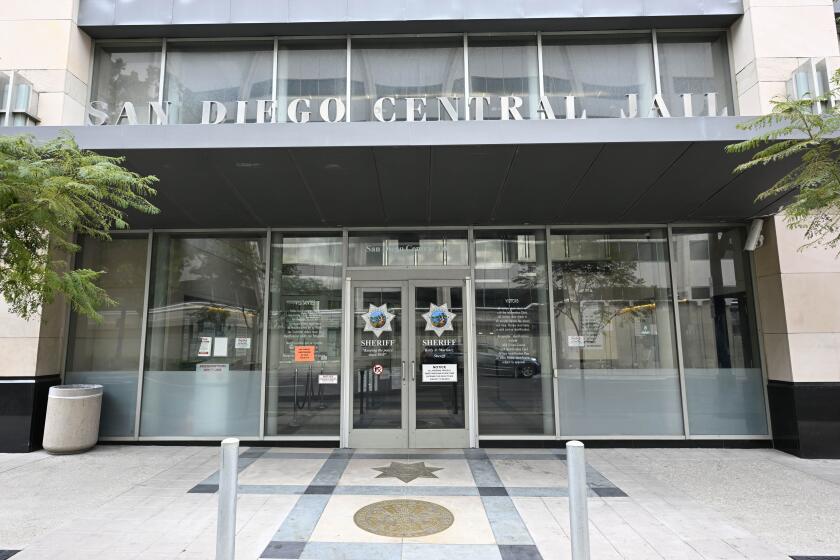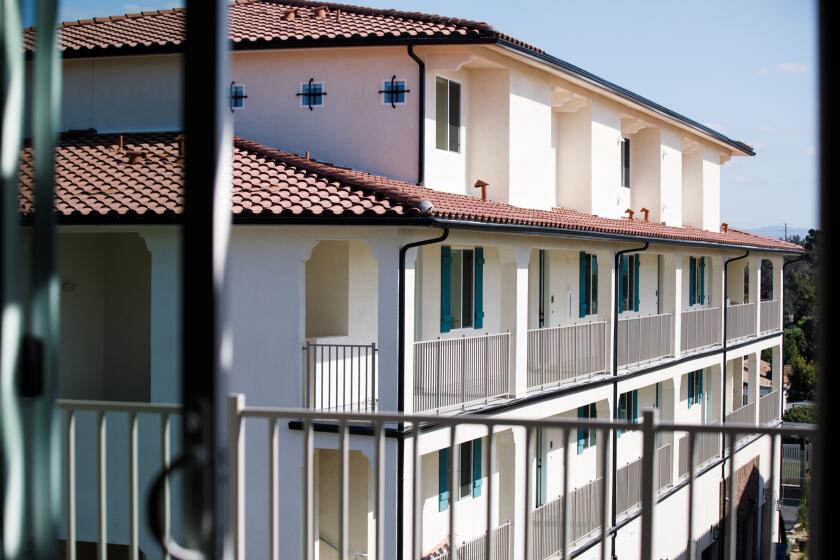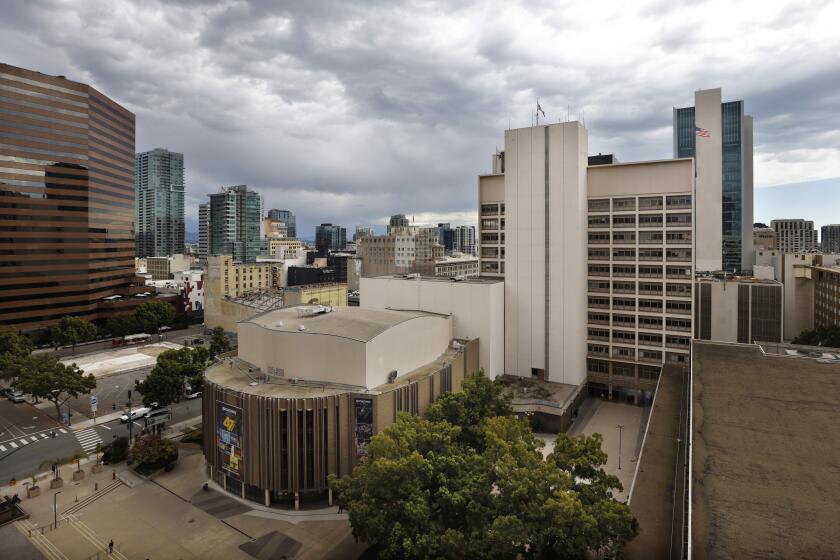Column: Immigration overhaul comes to the fore (again), but compromise still hard to find
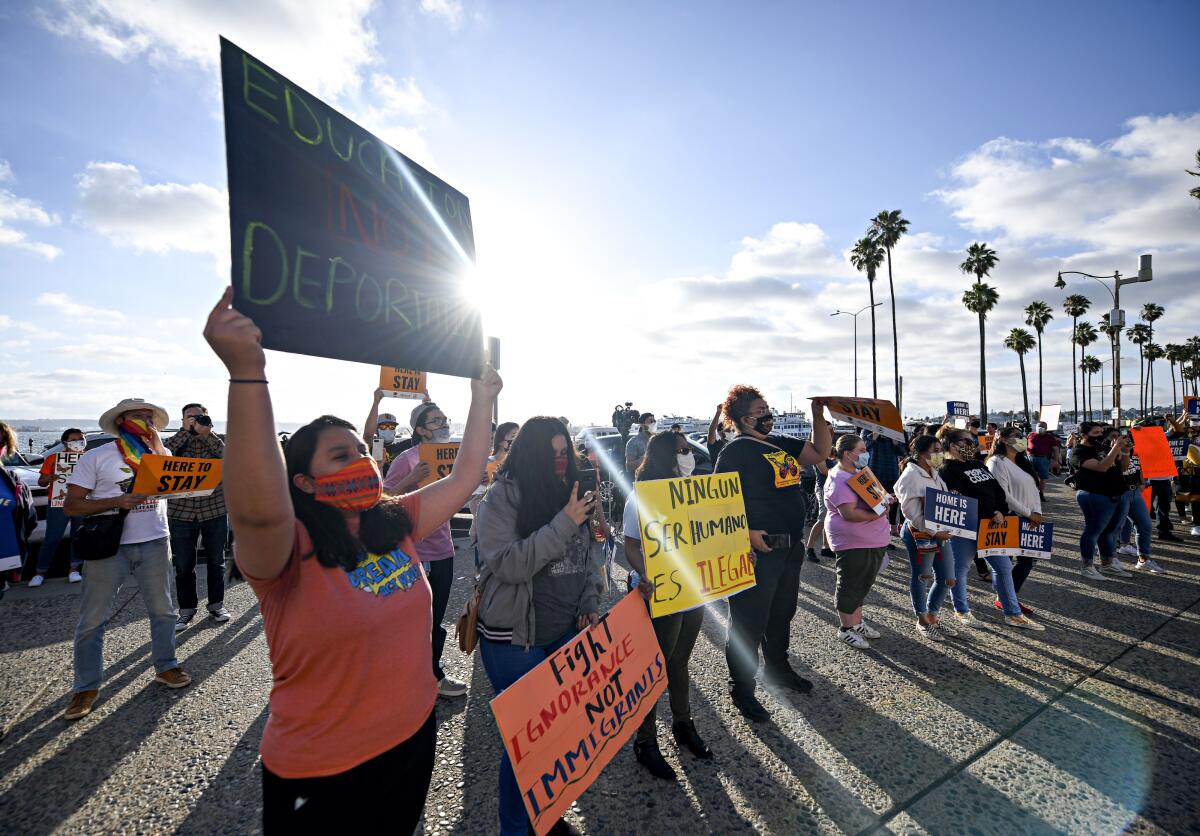
Schumer reportedly considering unilateral Democratic action if negotiations with Republicans fail
Congress faces a reckoning over immigration.
If it can’t pass at least two popular proposals this year, there may be no hope for improving what has been — for decades — a broken-down immigration system.
Certainly, a comprehensive overhaul is preferable, not to mention necessary. And, in a glass half-full view of the world, maybe that could happen, though past efforts have foundered in far less divisive times.
Passage of legislation to help so-called “dreamers” who came into the country illegally as children and undocumented farmworkers would show Congress can rise above its frequent partisan dysfunction and make changes that polls show have broad public support.
Bills to do both those things have passed the House on bipartisan votes, sort of. Republican support was paltry for both, with 34 GOP votes for the farmworker measure and just nine for the “dreamers” bill.
President Joe Biden, Democratic congressional leaders and immigrant advocates have signaled they are willing to consider a piecemeal approach to immigration reform by focusing on areas that have potential for bipartisan agreement.
Nevertheless, Biden continues to push his more sweeping revamp of immigration laws.
There’s no guarantee that even a comprehensive overhaul would prevent tragedies like the deadly maritime smuggling disaster near the Cabrillo National Monument on Point Loma last weekend, or the ongoing humanitarian crisis just south of the border.
But if there is no movement in Washington, this much seems certain: Such problems will continue in one form or another as they have for a long time, particularly during the Trump-era immigration crackdown.
With apparently little progress in immigration negotiations on Capitol Hill, Senate Majority Leader Chuck Schumer of New York raised the prospect of using a procedural maneuver to jam a comprehensive bill through the Senate with just Democratic votes, according to The New York Times.
Democrats did that two months ago with the $1.9 trillion American Rescue Plan Act. The coronavirus relief package was approved in the House on a nearly party-line vote. Then the Senate invoked the budget reconciliation act to avoid a Republican filibuster, which requires 60 votes to overcome. The evenly split Senate voted 50-50 and Vice President Kamala Harris cast her first tie-breaking vote.
“The strategy is part of a backup plan Mr. Schumer has lined up in the event that talks among 15 senators in both parties fail to yield a compromise,” the Times wrote.
Reconciliation allows a simple majority to pass certain types of legislation regarding spending, taxes and the budget. Whether the procedure can be used for a bill, or some of its components, is up to the Senate parliamentarian.
Elizabeth MacDonough, the Senate parliamentarian, in February ruled a proposal to increase the hourly minimum wage to $15 could not be included in the COVID relief bill if Democrats hoped to advance the measure under the reconciliation process.
Backers of a sweeping immigration plan believe the window of opportunity is now. For one thing, there’s a sense of momentum on the Democratic side, given the popularity of the relief bill and initial public support for Biden’s push to spend heavily on infrastructure and helping families.
More significant to the timing is the possibility of Democrats losing their slim majority in one or both houses of Congress in the 2022 elections.
Getting unanimous support from Senate Democrats won’t be easy.
Some Democrats and many Republicans suggest the first priority should be to deal with the situation at the border, where tens of thousands of migrants are camped out trying to get into the United States. The influx of unaccompanied migrant children detained at the border has been acute.
“While I share President Biden’s urgency in fixing our broken immigration system, what I didn’t hear tonight was a plan to address the immediate crisis at the border,” Sen. Mark Kelly, D-Ariz., said following Biden’s speech before Congress last week when he addressed numerous topics, including immigration.
Sens. Kyrsten Sinema, D-Ariz., and John Cornyn, R-Texas, no doubt want immediate action on their legislation to fund regional processing centers to more efficiently screen and process asylum seekers.
Biden is getting pressure from the public as well to improve the border situation. While polls show his overall approval ratings above 50 percent — and much higher for how he has handled the coronavirus pandemic — he gets low marks for his handling of the migrant influx.
As they have in the past, Republicans are demanding additional border security measures. Biden’s proposal, which includes an eight-year pathway to citizenship for an estimated 11 million undocumented immigrants in the U.S., doesn’t call for a major increase in border enforcement. But his proposal would provide increased technology to supplement existing efforts to control the border, and modernization of ports of entry.
The president submitted his immigration proposal to Congress on his first day in office, a symbolic move to underscore its importance. However, the focus so far in his young administration has been on COVID-19 relief, and economic and infrastructure proposals.
Biden wants his big legislation passed, but it sounds like he’ll settle for less.
“If you actually want to solve the problem — I have sent a bill to you, take a close look at it,” Biden said during his speech to Congress. “Now look, if you don’t like my plan, let’s at least pass what we all agree on.”
He mentioned protections for farmworkers, “dreamers” and others with temporary legal status.
One of the bills approved by the House would give a pathway to citizenship for people already in the country who came here when they were minors, including those allowed to remain under the Deferred Action for Childhood Arrivals program, or DACA, enacted by the Obama administration.
The other bill would give legal status to certain agricultural workers and allow employers to bring in new foreign labor.
It’s uncertain, perhaps unlikely, that Senate approval of those measures would improve the chances for a broader immigration overhaul.
Still, that would be a major accomplishment in the face of this country’s deep divisions over immigration.
Get Essential San Diego, weekday mornings
Get top headlines from the Union-Tribune in your inbox weekday mornings, including top news, local, sports, business, entertainment and opinion.
You may occasionally receive promotional content from the San Diego Union-Tribune.

